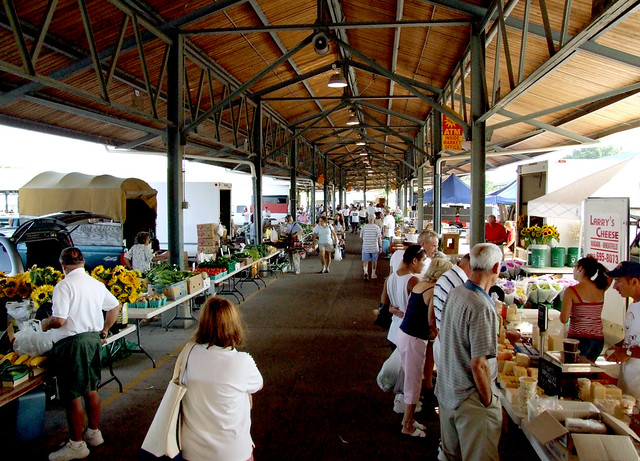
Although this time last year everyone in Rochester seemed to emerge from the woodwork to drink in the sunshine and go to fun events outside, this year we’re still experiencing the occasional snow shower. Nevertheless, it’s spring, and my favorite activity when warmer weather (hypothetically) hits is going to farmer’s markets to scope out local produce!
What are the benefits of buying local? For starters, buying locally is a great way to support the local economy and give the farmer full retail price. Buying local foods also helps to reduce your environmental impact, because it reduces the amount of energy used to transport food thousands of miles. In addition, locally purchased food is often more fresh than food found in supermarkets. Most produce that you buy in stores has been picked about a week in advance, and fruits and vegetables tend to lose some of their flavor and nutrients after a few days.
There are some wonderful markets to choose from in Rochester. If you’re on campus at the University of Rochester or live in the 19th Ward, the Westside Farmers Market located in the parking lot of St. Monica’s Church is nearby option for a great selection of fresh, local foods. Another great option is the Highland Park Winter Market. Located at the Cornell Cooperative Extension, it’s open on Wednesdays from 3-6pm. The Rochester Public Market is arguably the best venue in the area. Winner of the 2010 America’s Favorite Farmer’s Market, it is open Tuesdays and Thursdays from 6am-1pm and Saturdays from 5am-3pm. The public market has an unbelievable variety of produce at affordable prices, plus you’ll get to experience friendly vendors, the occasional street musician, and prepared delicious foods like empanadas. It’s open year-round, and is very community oriented. For a more complete list of farmers markets in Rochester, head over to this site. Many other markets open up in May, so be sure to check it out. Happy shopping!
Written by Leslie Wolf, Class of 2015

“Buying local foods also helps to reduce your environmental impact, because it reduces the amount of energy used to transport food thousands of miles. In addition, locally purchased food is often more fresh than food found in supermarkets.”
The energy used to transport food is a drop in the bucket compared to the energy used to grow food. Non-local food is usually non-local for a reason– the climate is better and the costs are lower, and that often means less energy is used to make it. Local farmers use more energy trying to grow food out of season. And the energy you use driving to the supermarket is far greater than the energy used to transport food, so even if local food did take less energy to produce, you remove that benefit if the Farmer’s Market is farther than the nearest grocery store.